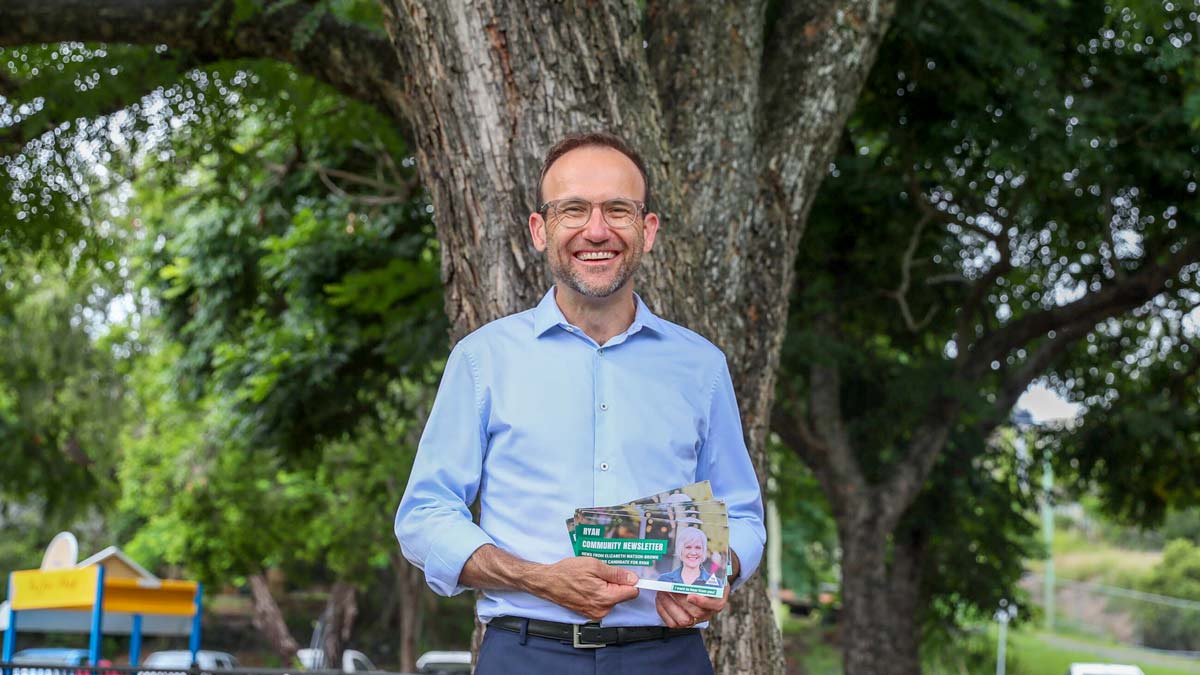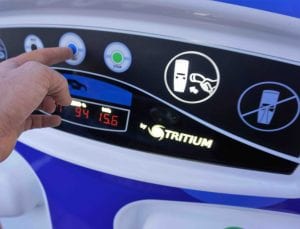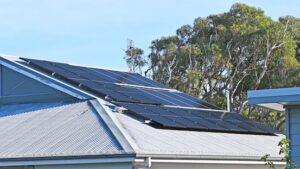The Australian Greens have launched a $6.1 billion plan to invest in Australia’s electric vehicle industry, supporting the re-emergence of vehicle manufacturing in Australia – as part of its bid to secure the balance of power in federal parliament.
The plan was unveiled by Greens leader Adam Bandt in Adelaide on Wednesday and details a plan to boost car manufacturing and lower the barriers for Australians wanting to make the switch to an electric vehicle.
Under the plan, the Greens would provide rebates of up to $15,000 – some of the most generous rebates proposed in Australia – and would offer additional “ultra-low-cost” financing for the remaining cost – to help reduce the barriers to owning an electric vehicle.
The Greens would also establish a $1.2 billion fund to revitalise vehicle manufacturing in Australia, supporting the local production of electric vehicles and parts, and tapping into Australia’s rich supplies of raw materials.
South Australia had previously served as a hub for Australia’s vehicle manufacturing industries, hosting significant Holden and Mitsubishi factories that have since closed as part of a broader collapse of Australia’s car-making industries.
Ventures have sought to revive this industry by repurposing much of previous facilities for electric vehicle production, with analysis suggesting that Australia could be well placed to emerge as a major player in electric vehicle production given the local abundance of the necessary materials.
The Greens’ plan would include an additional $2 billion that would be invested in a publicly owned fast-charging network, to help ensure drivers have ready access to charging infrastructure.
The Greens would also push to legislate strong vehicle pollution standards that would effectively end the same of new petrol and diesel vehicles by 2030.
The current Morrison government has long resisted calls to implement stricter fuel and emissions standards on Australian vehicles – labelling such a plan as an ‘effective carbon tax’ – but it has seen Australia become a dumping ground for less fuel efficient vehicles.
The Greens aiming to pick up additional seats in both the House of Representatives and the Senate at the forthcoming federal election, hoping to find itself in a balance-of-power position that would allow it to negotiate for its policies.
Bandt said the plan could see Australians driving locally made vehicles again – following the complete closure of local plants – while cutting transport emissions.
“In a few years, the whole country could be driving SA-made electric cars,” Bandt said.
“We’ll cut pollution, create jobs and be energy independent if we restart SA’s car industry and make it electric. The Liberals flattened SA’s car industry but the Greens want to recharge it.”
“As well as making electric cars here, we’ll make them cheaper to buy and easier to recharge. The war in Ukraine shows us just how exposed we are if we rely on another country’s oil to get around.”
“Road transport makes up 15% of Australia’s emissions, so any party with a net zero emissions target needs a plan to get our cars running on the sun and the wind,” Bandt added.
The electric vehicle plan also includes a commitment to transition the federal government’s vehicle fleet to electric models by 2025.
A recent renewal of the Comcar fleet – the vehicles used to ferry federal politicians when on official business – opted to stick with petrol-fuelled models, despite a range of electric models being evaluated as part of the replacement fleet.
Speaking from South Australia, the plan was co-launched by the Greens South Australian senate candidate Barbara Pocock.
Pocock said the plan could deliver a substantial jobs boost in South Australia’s emerging electric vehicle industry, which has already attracted some interest from local and international car companies.
“Making electric vehicles here will mean thousands of jobs for South Australians. It will also have flow on benefits supporting research, development and manufacturing across the country,” Pocock said.
“The Greens will put $1.2 billion on the table for the manufacturing of electric vehicles and their components here in Australia.”
A growing number of politicians have made the switch to electric vehicles for their personal use, including Labor’s climate and energy spokesperson Chris Bowen.
Former Labor leader Bill Shorten also owns a Tesla, as does Western Australian MP Patrick Gorman.
Liberal MP Katie Allen has also opted to deploy her Tesla Model 3 as part of her re-election bid.
🚙 Starting my weekend with tech, not taxes. #auspol #Tesla pic.twitter.com/jw2WIViXcu
— Katie Allen MP (@KatieAllenMP) April 1, 2022









